Showing 31 to 40 of 272 results
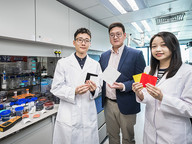
A significant breakthrough in developing a passive radiative cooling (PRC) material has been announced by researchers at City University of Hong Kong (CityU). The findings have just been published in the prestigious scientific journal Science titled “Hierarchically structured passive radiative cooling ceramic with high solar reflectivity.”
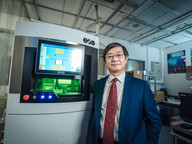
Recently, joint research by City University of Hong Kong (CityU) and Shanghai Jiao Tong University achieved a breakthrough by creating an aluminium alloy with unprecedented fatigue resistance using advanced 3D printing techniques. The new fatigue-resistance strategy can be applied in other 3D-printed alloys to help develop lightweight components with increased load efficiency for various industries.
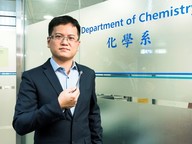
A huge step forward in the evolution of perovskite solar cells recorded by researchers at City University of Hong Kong (CityU) will have significant implications for renewable energy development.
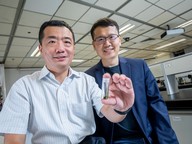
Chemotherapy for cancer treatment often results in collateral damage to healthy cells and other adverse effects. A research team led by City University of Hong Kong (CityU) recently developed “sono-sensitised chemotherapy” (SSCT), a new form of ultrasound-activated chemotherapy.
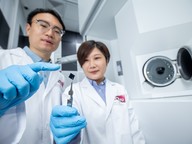
A research team co-led by scholars from City University of Hong Kong (CityU) has successfully morphed all-inorganic perovskites at room temperature without compromising their functional properties.
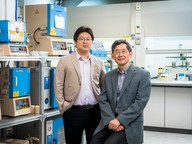
A pivotal breakthrough in battery technology that has profound implications for our energy future has been achieved by a joint-research team led by City University of Hong Kong (CityU).
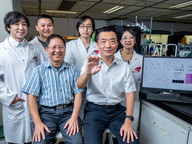
A research team led by scientists from City University of Hong Kong (CityU) has achieved a significant breakthrough by inventing a new class of near-infrared-activated photo-oxidants that can effectively kill cancer cells without requiring oxygen.
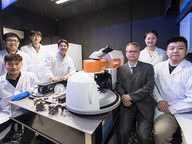
A research team led by City University of Hong Kong (CityU) has achieved a groundbreaking advancement in nanomaterials by successfully developing a highly efficient electrocatalyst which can enhance the generation of hydrogen significantly through electrochemical water splitting.
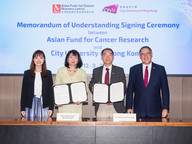
City University of Hong Kong (CityU) signed a Memorandum of Understanding (MoU) today (12 September) with the Asian Fund for Cancer Research (AFCR) to establish a closer collaboration between both parties and jointly promote cutting-edge cancer-related innovative inventions and commercialisation.

Precisive real-time prediction of the movement of nearby vehicles or the future trajectory of pedestrians is essential for safe autonomous driving.
